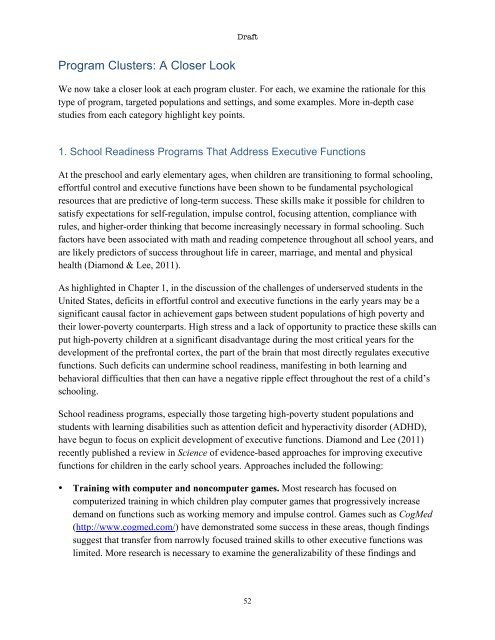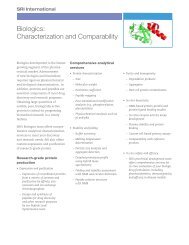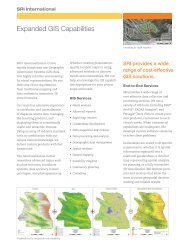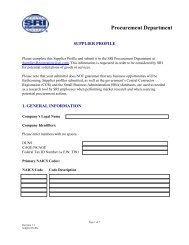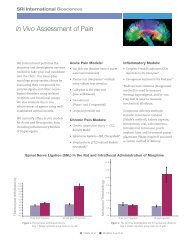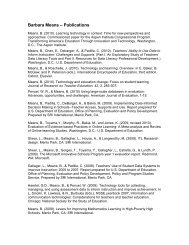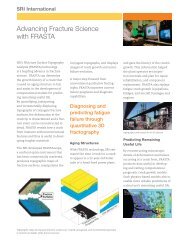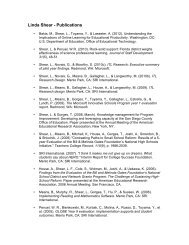Promoting Grit, Tenacity, and Perseverance - U.S. Department of ...
Promoting Grit, Tenacity, and Perseverance - U.S. Department of ...
Promoting Grit, Tenacity, and Perseverance - U.S. Department of ...
Create successful ePaper yourself
Turn your PDF publications into a flip-book with our unique Google optimized e-Paper software.
Draft<br />
Program Clusters: A Closer Look<br />
We now take a closer look at each program cluster. For each, we examine the rationale for this<br />
type <strong>of</strong> program, targeted populations <strong>and</strong> settings, <strong>and</strong> some examples. More in-depth case<br />
studies from each category highlight key points.<br />
1. School Readiness Programs That Address Executive Functions<br />
At the preschool <strong>and</strong> early elementary ages, when children are transitioning to formal schooling,<br />
effortful control <strong>and</strong> executive functions have been shown to be fundamental psychological<br />
resources that are predictive <strong>of</strong> long-term success. These skills make it possible for children to<br />
satisfy expectations for self-regulation, impulse control, focusing attention, compliance with<br />
rules, <strong>and</strong> higher-order thinking that become increasingly necessary in formal schooling. Such<br />
factors have been associated with math <strong>and</strong> reading competence throughout all school years, <strong>and</strong><br />
are likely predictors <strong>of</strong> success throughout life in career, marriage, <strong>and</strong> mental <strong>and</strong> physical<br />
health (Diamond & Lee, 2011).<br />
As highlighted in Chapter 1, in the discussion <strong>of</strong> the challenges <strong>of</strong> underserved students in the<br />
United States, deficits in effortful control <strong>and</strong> executive functions in the early years may be a<br />
significant causal factor in achievement gaps between student populations <strong>of</strong> high poverty <strong>and</strong><br />
their lower-poverty counterparts. High stress <strong>and</strong> a lack <strong>of</strong> opportunity to practice these skills can<br />
put high-poverty children at a significant disadvantage during the most critical years for the<br />
development <strong>of</strong> the prefrontal cortex, the part <strong>of</strong> the brain that most directly regulates executive<br />
functions. Such deficits can undermine school readiness, manifesting in both learning <strong>and</strong><br />
behavioral difficulties that then can have a negative ripple effect throughout the rest <strong>of</strong> a child’s<br />
schooling.<br />
School readiness programs, especially those targeting high-poverty student populations <strong>and</strong><br />
students with learning disabilities such as attention deficit <strong>and</strong> hyperactivity disorder (ADHD),<br />
have begun to focus on explicit development <strong>of</strong> executive functions. Diamond <strong>and</strong> Lee (2011)<br />
recently published a review in Science <strong>of</strong> evidence-based approaches for improving executive<br />
functions for children in the early school years. Approaches included the following:<br />
• Training with computer <strong>and</strong> noncomputer games. Most research has focused on<br />
computerized training in which children play computer games that progressively increase<br />
dem<strong>and</strong> on functions such as working memory <strong>and</strong> impulse control. Games such as CogMed<br />
(http://www.cogmed.com/) have demonstrated some success in these areas, though findings<br />
suggest that transfer from narrowly focused trained skills to other executive functions was<br />
limited. More research is necessary to examine the generalizability <strong>of</strong> these findings <strong>and</strong><br />
52


